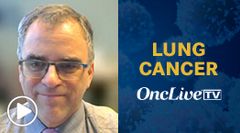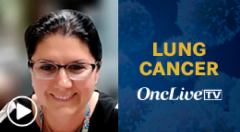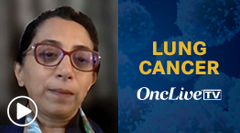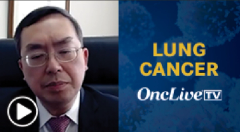
Dr Rosca on Key Challenges in Genetic Testing for Lung Cancer
Oana Catalina Rosca, MD, discusses key challenges in genetic testing for lung cancer.
Oana Catalina Rosca, MD, Cytopathologist/Molecular Pathologist and Assistant Professor, Donald and Barbara Zucker School of Medicine, Hofstra/Northwell Health discusses key challenges in genetic testing for lung cancer.
One of the key challenges in genetic testing for lung cancer is the lack of critical information on the requisition form, such as prior relevant clinical history, the clinician’s name or the priority of the sample, Rosca begins. This missing information often leads to miscommunication between clinicians and pathologists, especially when the procedure is a repeat biopsy intended for molecular testing, she explains, adding that without this clarity, pathologists may be unaware that the test is for molecular analysis rather than initial diagnosis.
Another major issue arises with small biopsy samples, where limited tissue availability complicates molecular testing, Rosca says. During an initial biopsy in a patient with no prior diagnosis, much of the tumor material may be consumed for immunohistochemical studies to establish a diagnosis, leaving insufficient tissue for molecular analysis, she continues. Additionally, different molecular testing platforms require varying amounts of tissue, Rosca adds. For example, panels that analyze large gene sets, such as those covering 400 or more genes, demand more tissue compared with smaller, more targeted panels that require less material, according to Rosca. This challenge is further exacerbated when tissue is scarce, making it difficult to perform the necessary tests, she states.
These factors contribute to the reasons why clinicians may not always receive the expected results from genetic testing, Rosca expands. There is often a gap in understanding among clinicians regarding the amount of tissue needed for both the initial diagnosis and the subsequent platform-specific molecular studies,. Clinicians may not fully realize that additional studies, such as molecular testing, often require more tissue beyond what is needed for the initial diagnosis, she notes. This disconnect highlights the need for better communication and education regarding testing workflows and tissue requirements in lung cancer care, Rosca concludes.








































